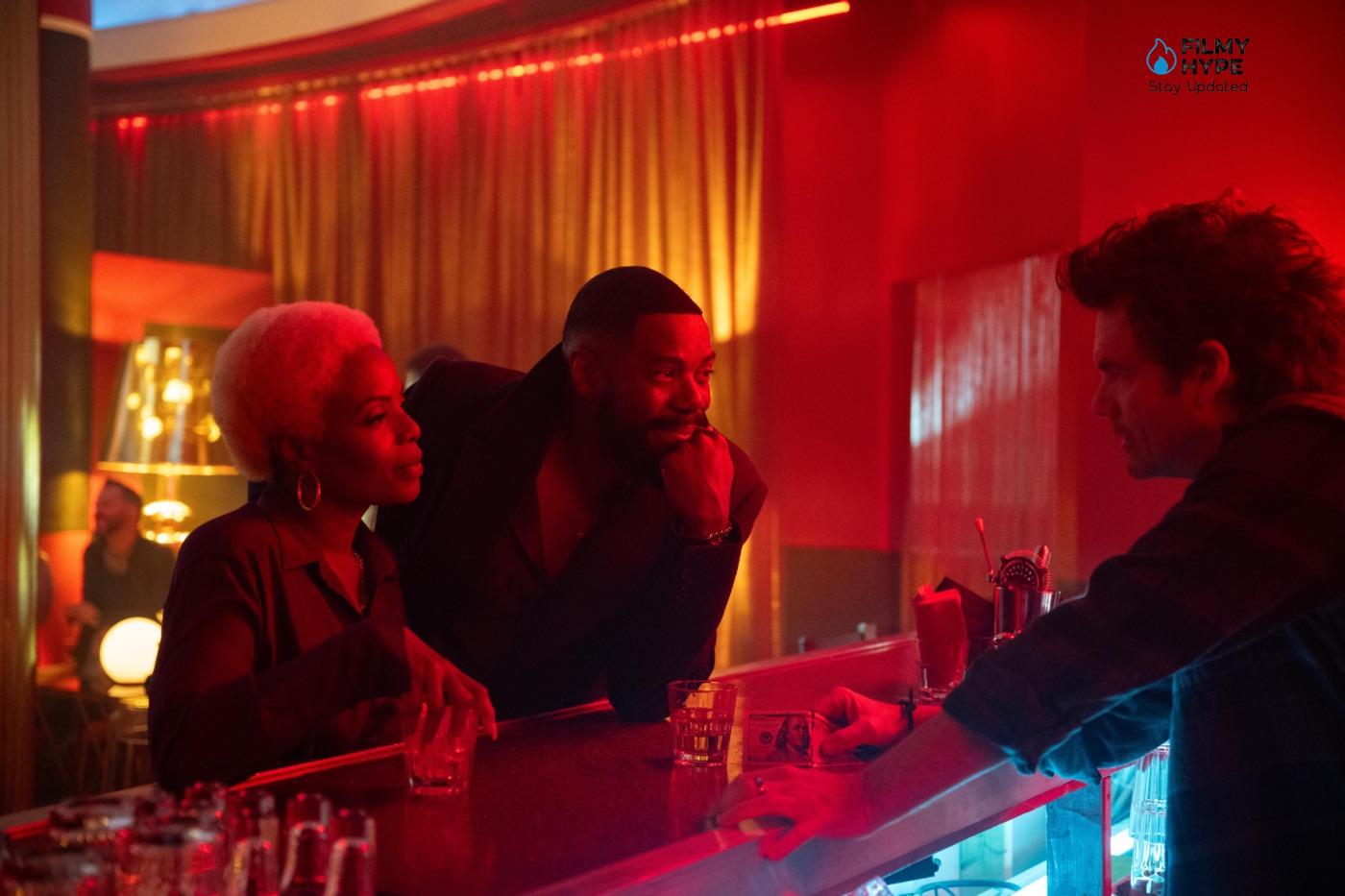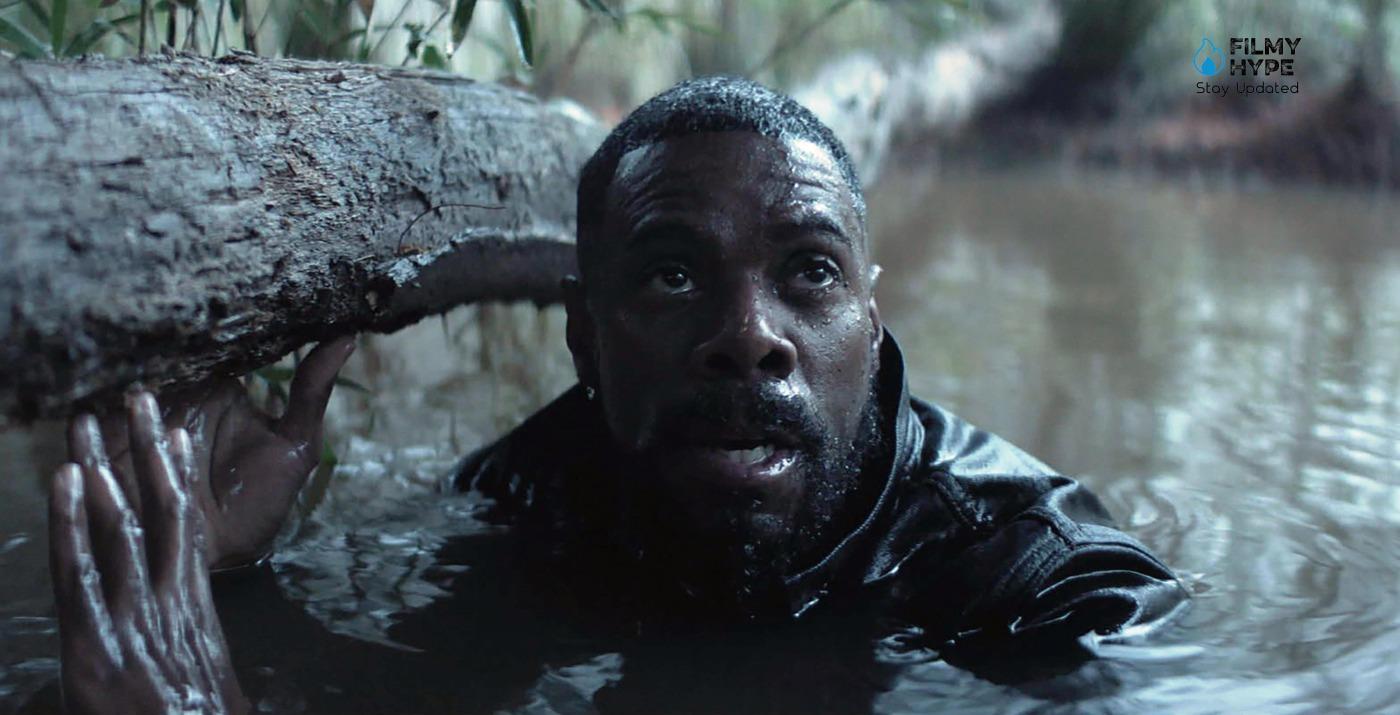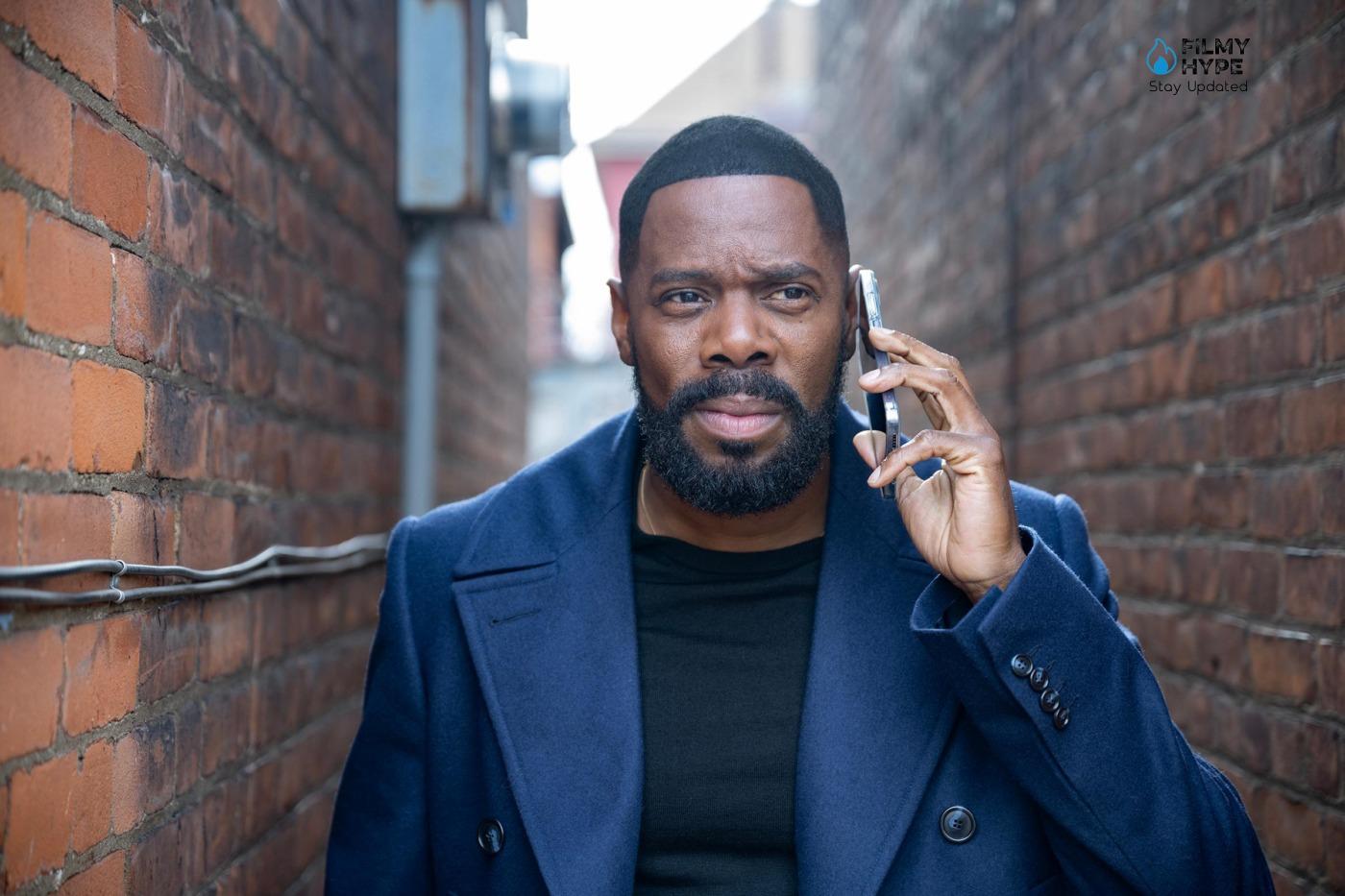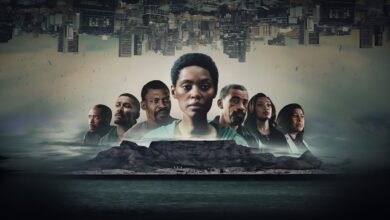The Madness Review: The Review of The Netflix Series with Colman Domingo
The Madness Review: The Madness, created by Stephen Belber, also a showrunner paired with V.J. Boyd, is an 8-episode miniseries available on Netflix from November 28, 2024. Conspiracy thriller attuned to the chaotic American contemporaneity, it has as its protagonist the highly launched Colman Domingo, who in the world of seriality has now carved out a very important space (Emmy Award for Euphoria) and even in the cinema he is not joking, thinking about the solid relationship with the Oscar that could continue with the acclaimed Sing Sing (2023). The Madness does not leave him alone, surrounding him with a good cast that includes, among others, John Ortiz, Marsha Stephanie Blake, Deon Cole is Stephen McKinley Henderson. If it is true that a good story is recognized by the ease of summarizing it, the premises are interesting. What are we talking about? Of the wrong man, in the wrong place, at the wrong time.

A series that mixes thrillers and politics, reflections on the present and family affections, in an ambitious story capable of going beyond pure gender to speak – not without some difficulty – of the world crazed in which we live. In eight very dense episodes, the story of the TV presenter and commentator Muncie Daniels, the classic character in the wrong place at the wrong time, unfolds. A story where racial tensions, relations between politics and economic interests, environmentalism and mental health end up converging in an inevitably overloaded narrative, constantly undecided between pure commitment and entertainment, gender, and political and social issues that are anything but trivial. At the center of the story, we find Muncie Daniels, an investigative journalist who finds himself in a spiral of disturbing events, between a murder to be resolved, the law on his heels, and a past that returns to torment him. Directed with skill and imbued with dark atmospheres, this series in 8 episodes promises to be one of the most discussed of the moment.
The Madness Review: Story Plot
Muncie Daniels (Colman Domingo) is an extremely unfortunate man. Trained teacher and then also activist, he lives in Philadelphia. His life changed once he got a successful TV talk show that made him a small-screen star. The Madness projects Muncie’s story into a fairly calibrated mix of old and new. Old, because the narrative system starts from one of the most classic Hitchcockian conventions – the innocent unjustly accused – to mix with the paranoid forms of the good old conspiracy thriller ’70s. New, because thematic reflections have their share of modernity; it is not so much a question of identity paper – white supremacy is not exactly the hottest novelty in American history – as it is topical and pertinent to the speeches.

Muncie leaves Philadelphiapia and moves momentarily to a cabin on the Poconos, north-eastern Pennsylvania, to write a little. He knows a man, Mark Simon (Tahmoh Penikett), a white man, it should be noted, who looks at him in a somewhat strange way and with whom he exchanges kind and tense words. He will find him dismembered near his home, after escaping the killers by a hair and discovering that the murdered man was a damned white supremacist. Thus begins Muncie’s paranoid nightmare, the wrong man in the wrong place, fleeing a hostile force and very dangerous because it is faceless. The police think he is the real killer, animated as he is by racist drives that do not bother to hide in the least.
Only the FBI agent John Ortiz believes in his innocence, but it is not easy to prove it because, for every attempt by the protagonist to get out of trouble, there is the response of the faceless enemy. Muncie hindered at the public image level by the controversial figure of his father, does not have an easy life even in the family. His wife Elena (Marsha Stephanie Blake) divorced and the children Kallie (Gabrielle Graham) and Demetrius (Thaddeus J. Mixson) a continuous ups and downs. It is not difficult to understand what it is that it tries to achieve, The Madness, with ruthless obstinacy, from its history: the stratification of reading plans. Thrillers, conspiracy elements, capitalist criticism, racial tensions, mental health, environment. It is not a small thing.
The Madness Review and Analysis
It is no coincidence that the protagonist is a known face, a public figure: it is his own to be famous to make it perfect as a scapegoat. The entire plot of The Madness revolves around the construction of a public enemy that doesn’t actually exist. Muncie has two great misfortunes: finding yourself in the wrong place at the wrong time and being black. You will understand why following the plot, of a ’hot current: in the world of storytelling, as well as in the real world, social networks, the internet, and the media – in this order – decide what’s true and what’s not. If someone writes on the internet that you are a murderer, before any trial, trial, or conviction, you become one. This is the truth nerve center of the narrative, the ease with which an immaculate reputation is destroyed with a sentence. People believe everything that ends up on the net. We have experimented with it extensively, especially in recent years. We know it is so, period. And when to stir up the crowds and what they believe there is ’I hate, everything somehow becomes even “truer”.

More credible. More likely. Because the world we live in, and where Muncie Daniels lives – with her family and friends – is ours. Difficult not to think about Public Enemy, the film with Will Smith and Gene Hackman in which we plot, paranoia, and disinformation coexisted with the mass media and the ability to condition public opinion. Here we are on the same horizon as the story. The same story declined in an era and with different themes, much more current. Slamming the (alleged) monster on the front page is a habit we have always had. The problem, however, has changed a lot today. Not only do they do it media processes whose eventual denial, then, goes substantially unnoticed (staining reputation is a moment, cleaning it up it’s almost impossible). There is more. In our society, we also decide to “Demostrify”, pass me the invented term because it makes the idea well, the real monsters – putting people without faults in their place.
And so, in society itself, anti-Semitism and neo-Nazism are not that serious, while a black man who kills a white man corresponds to an unforgivable crime. In America, at least. This is The Madness of the title. The ability to decide who – in addition to what – is right or wrong. The ability to create alibis for people who don’t have and don’t deserve it while shooting zero on someone who hasn’t done anything wrong. The story of Muncie, of Mark Simon (Tahmoh Penikett, Dollhouse, Battlestar Galactica), by Lucie Snipes (Tamsin Topolski, Slow Hores) and their families takes place in our world, where monsters are created and undone according to the convenience of the moment. The way truth is manipulated it is there for all to see, with two wars going on and an infinite number of situations whereby the term “narration” is much more fitting than “facts”.
With the absurdity that truth is often accused of being a “narration”. The game of mirrors of contemporary society is the background to the story of a man who ended up in trouble out of pure bad luck. The most interesting aspect of this classical history in which an innocent fight against “strong powers” to exonerate himself from unjust accusations is the underlining of how easy it is to end up in the wrong hands. Seven, apparently harmless associations, conspiracy theorists, and scammers of various kinds: there are thousands of traps in the real and virtual world where people in a difficult moment end up falling. Smart people or even related to law enforcement members, mothers, and professionals: it can happen to anyone. This is the most powerful message of the series, which however exaggerates.

The chain that leads to those who have hatched the trap is too long. Exaggeratedly long. Infinite. 8 episodes for a plot like this are really excessive. Despite the cast’s skill, all starting with Domingo, at some point you get tired. As well done as it is, The Madness went shortened. 5 or 6 episodes would have been perfect. In the end, it extends indefinitely the same pattern: Muncie thinks she has succeeded in her intent and is preparing for normal life, but someone or something gets in the way. You can’t pull the rope so much with the viewer. It follows you through a lot of difficulty and corruption. After that, he begins to wonder if and when this story will end… The man alone (or almost) lost in the mesh of a diabolical system that does everything to isolate him, crush him, and drive him crazy is a narrative top that cinema has nourished for decades.
From Hitchcock and his ordinary men wrongly accused The Three Days of the Condor and the political cinema of the seventies, the conspiracy thriller has become, as well as a suspense mechanism, the best way to analyze, through gender, the historical period in which we live. It is not surprising then that in times of post-truth, fake news, extremism, political corruption, and overwhelming power of multinationals, the conspiracy thriller has returned to the limelight, a mirror of an elusive and difficult-to-read present. In an escape that is also an investigation, this is how the protagonist laps the boundaries of paranoia to uncover the true madness brought by an entire system. A world “crazed” where Power, to perpetuate itself, uses every means necessary, from the media to murder, while the individual remains poised between enslavement and a sense of justice that increasingly takes the form of revenge.
Using all the necessary tools, between pursuits, sidings, and more or less plausible plots, The Madness thus becomes the journey of a man in search of truth and integrity that he believed lost. A story made not only of thrillers and conspiracies but also of capitalist criticism, environmental issues, and racial tensions …A lot, perhaps too much meat on the fire that risks leaving the series without a precise direction. Lost between heterogeneous suggestions and reflections far from simple on the contemporary. The complexity that The Madness inevitably tries to bring back to the logic of the genre and to a limited space of things (to better develop each theme touched would have served well over eight episodes) but not always with success. Thus, ending with losing, especially in the second part, much of the strength and charm of the initial premises. A downsizing perhaps inevitable but it leaves a bitter taste in the mouth for a story with great potential and with much to say about that present in which we all find ourselves living.

There is a lot and, as the series manages its complexity, perhaps even too much. The Madness Upstream is a conspiracy thriller imbued with opaque truths and elusive shadows; downstream it tries to be something more, linking the conventions of the thriller to the American contemporary in the attempt, valuable but not always optimal in the performance, to anchor the entertainment and the spectacular dimension of the story to a more complex and structured background. There is the racial issue and, in the protagonist’s past, also a reflection on mental health and the relationship between public and private. There is an analysis of the toxic links between the economy, society, politics, and the environment, a family in crisis, and the praise of the family as a stumbling block of affection and human warmth in a cruel and, in fact, mad world.
There are eight episodes and for once conciseness is a limit and not a strength, because the complex thematic architecture imagined by Stephen Belber is V.J. Boyd for The Madness it would have needed more time and more space to allow each theme, each note, and each character nuance to improve adequately. Instead, the time and space to work on history, freeing up unexpressed potentials, are not there and the series, admirable for the quality of the staging and the solidity of the suspense, softens the interesting premises of the first half in a more cumbersome and cumbersome second part, tabs to derail the conspiracy soul in a little credible conspiracy also considering the starting standard. The Madness is a solid and tense series poised between current events and pure, violent, and populated entertainment of ghosts, held back by its ambition or, to be more precise, by the structural difficulty in managing its ambition in the right way. Redeemed but only in part, in its imperfection, from the centrality reserved to a very convincing one Colman Domingo.

Emmy winner, nominated for the 2024 Oscar for Rustin, Colman Domingo, at the (not so) venerable age of 55, reached the actor’s maturity necessary to marry a remarkable charm and physical presence to the story of intense fragility and emotion; they do not clash with the tension and violence of history but, on the contrary, enrich it. Colman Domingo, it’s the best thing about The Madness even if that’s not enough, the density and truth of his – test are also remarkable, keeping in mind the conspiracy unreality of much of the story – to redeem the series from the imbalance of a thematic ambition not supported by adequate narrative solidity. Valuable in intentions, and oscillating in yield, the budget of The Madness results in an honorable draw.
The Madness Review: The Last Words
The Madness is the miniseries available on Netflix from November 28 in which Colman Domingo (Fear The Walking Dead) is in the wrong place at the wrong time. As a respected CNN commentator, he is transformed into public enemy number 1, hunted down by powerful people with covered shoulders. A classic story in which an innocent man ends up acting as a scapegoat to cover increasingly complex crimes e branched. The cast is excellent, and the realization is cured but 8 episodes are too many for a story largely already seen. We hold up to a certain point, after which the pattern – it seems to be over, no: it is betrayed again – begins to tire. Sin. Shortening to 5 or 6 episodes, eliminating all unnecessary digressions, the result would have been excellent.
Starring: Colman Domingo, Marsha Stephanie Blake, and John Ortiz
Creators: Stephen Belber
Streaming Platform: Netflix
Filmyhype.com Ratings: 3/5 (three stars)







